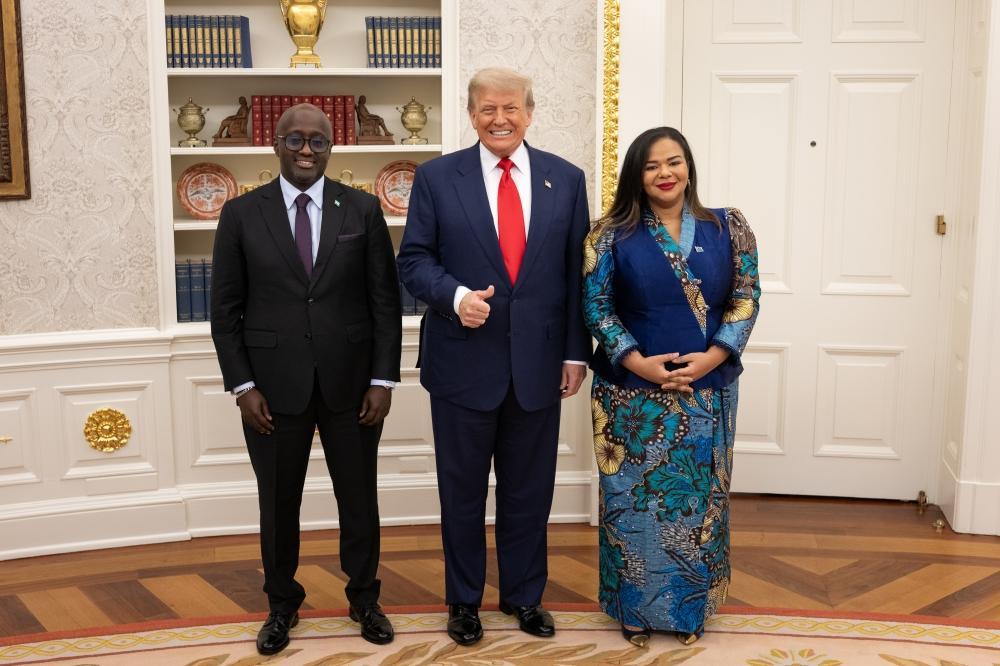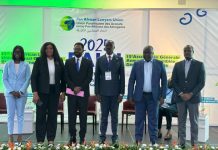Africa-Press – Rwanda. The implementation of a peace agreement signed on Friday, June 27, in Washington DC by Rwanda and DR Congo will start with the neutralisation of FDLR, a Kinshasa-backed militia founded by remnants of the perpetrators of the 1994 Genocide against the Tutsi, according to Rwanda’s foreign minister.
Speaking at the signing, Olivier Nduhungirehe, who signed the agreement, alongside his Congolese counterpart Therese Kayikwamba Wagner, said the US-brokered peace deal was a result of efforts by multiple actors, including Qatar, which is mediating a parallel initiative between DR Congo and the AFC/M23 rebels, as well as the African Union-appointed mediator, Togolese President Faure Gnassingbe.
“The first order of business is to begin implementation of the Concept of Operations for the Neutralization of FDLR, to be accompanied by a lifting of Rwanda’s defensive measures,” Nduhungirehe said.
The Concept of Operations for the Neutralization of FDLR (CONOPS) was agreed upon by Rwandan and Congolese officials in October 2024, in Angola, under what is known as the Luanda Process, an AU-backed initiative then facilitated by Angolan President João Lourenço.
“This is grounded in the commitment made here for an irreversible and verifiable end to state support for FDLR and associated militias. That is the bedrock of peace and security in our region.”
“FDLR is no ordinary militia,” he maintained. “It is the remnant of the forces which committed the Genocide against the Tutsi in Rwanda in 1994, in which a million people were killed.”
Speaking during a meeting with US President Donald Trump, after the peace deal’s signing, Nduhungirehe reiterated that the CONOPS are an important element in the implementation of the much-anticipated peace agreement.
“In the agreement we signed,” Nduhungirehe told news reporters, “we have taken the concept of operations for the neutralization of the FDLR, which is a vicious genocidal movement, and the lifting of defensive measures,” he said.
Kigali has in the past maintained that it will maintain its defensive measures along the border with DR Congo as long as security threats from the Congolese army (FARDC) and its allies such as FDLR exist.
What about AFC/M23 rebels?
Nduhungirehe was also asked whether the agreement concerns the Alliance Fleuve Congo (AFC/M23) rebels, who now control swathes of territory in eastern DR Congo.
He said the Washington peace agreement will be complemented by the Qatar-led negotiations, which are expected to reach another deal between the Congolese government and the rebels.
“For the M23, in the agreement, we have decided to rely on the Doha talks because there are currently talks between the AFC/M23 and the DRC government to have a peace deal also,” he said.
“That will complement the Washington peace agreement.”
Last month, Corneille Nangaa, the leader of the AFC/M23 movement, outlined four main reasons – including bad governance – why his group is fighting to topple the Congolese government. Nangaa attributed the crisis in eastern DR Congo to the collapse of state institutions in what he described as a failed state.
AFC/M23 is fighting for governance that supports basic human rights, secures all Congolese citizens, and addresses the root causes of conflict. The rebellion has vowed to uproot tribalism, nepotism, corruption, and the genocide ideology spread by FDLR, among other vices, widespread in DR Congo.
Nduhungirehe said that the agreement also had elements on the repatriation of refugees, hundreds of thousands of whom live in camps in the region. Rwanda alone hosts more than 100,000 Congolese refugees, some of whom have spent more than 25 years in camps.
“With this agreement, we also committed to facilitate the return of refugees in our respective territories, with the support of UNHCR,” he said.
“Creating the conditions for the safe and dignified return of refugees is vital to achieving lasting peace.”
‘A turning point’
He added that the agreement also encompasses the socioeconomic development of Rwanda and DR Congo.
“We also look to enhanced economic cooperation, including with American companies and investors. Shared growth and cross border cooperation will unlock tangible dividends for both our countries,” Nduhungirehe noted.
“We must acknowledge that there is a great deal of uncertainty in our region, and beyond, because many previous agreements have not been implemented. And there is no doubt, that the road ahead will not be easy.”
The minister noted that with the agreement “a turning point has been reached,” thanks to the efforts of the US government and other partners.
“Rwanda stands ready to work with the DRC to deliver on our joint commitments,” he said.
For More News And Analysis About Rwanda Follow Africa-Press






